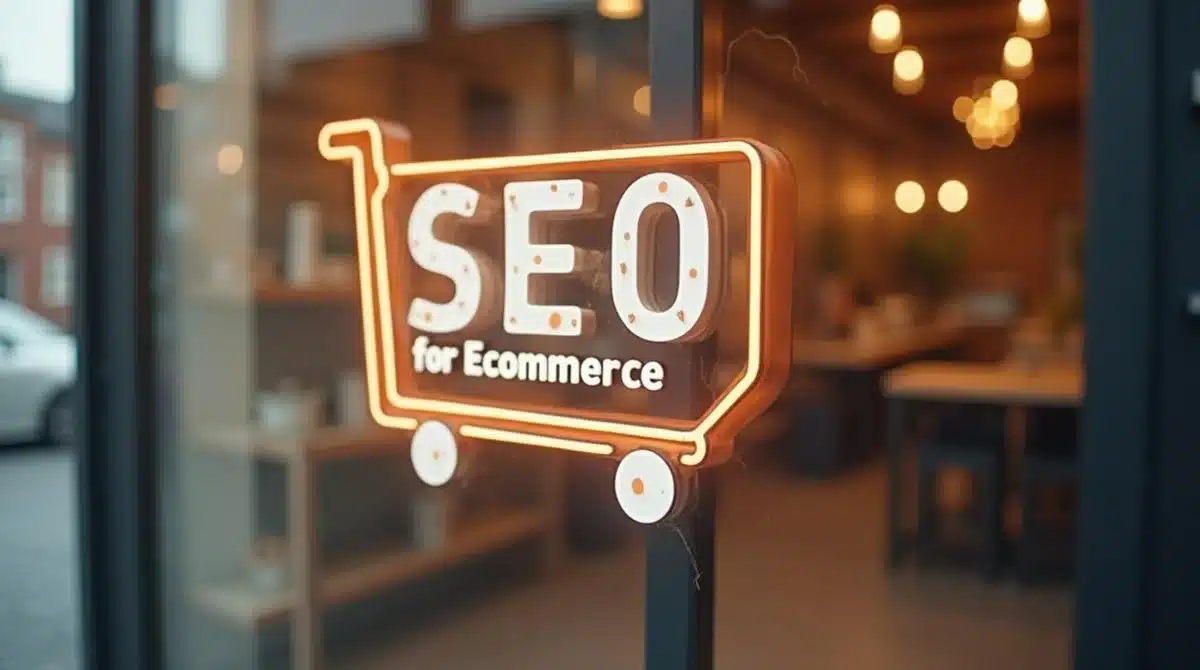Making Your Online Shop More Visible Through SEO for Ecommerce
Running an online shop without proper search engine optimisation is like opening a physical store in a hidden alleyway. No matter how brilliant your products are or how competitive your prices might be, customers simply won’t find you. SEO for ecommerce has become the cornerstone of digital retail success, transforming how businesses connect with potential buyers in an increasingly crowded marketplace.
Understanding the Ecommerce SEO Landscape
The digital shopping environment has evolved dramatically over recent years. Search engines have become sophisticated at understanding user intent, particularly when it comes to commercial queries. When someone searches for “waterproof hiking boots size 10,” they’re clearly ready to make a purchase. Your ecommerce site needs to capture these high-intent searches by implementing strategic optimisation techniques that go beyond basic keyword placement.
Modern ecommerce SEO requires a multifaceted approach. Product pages need unique, compelling descriptions rather than manufacturer-supplied content that appears on hundreds of other sites. Category pages must balance keyword optimisation with user experience, providing both search engines and shoppers with clear navigation paths. Technical elements like site speed, mobile responsiveness, and structured data markup have become non-negotiable factors in achieving visibility.
Product Page Optimisation Strategies
Individual product pages represent your greatest opportunity for search visibility. Each page should target specific, long-tail keywords that match how customers actually search. Instead of optimising for “running shoes,” target phrases like “women’s trail running shoes for muddy conditions” or “lightweight marathon training shoes under £100.” These specific queries often have less competition whilst attracting buyers who know exactly what they want. Speed Enhancements That Actually Transform Your Digital
Product descriptions deserve particular attention. Rather than listing features, focus on benefits and real-world applications. Describe how the product solves problems or enhances experiences. Include details about materials, dimensions, care instructions, and compatibility information. This comprehensive approach naturally incorporates relevant keywords whilst providing genuine value to shoppers researching their purchase.
User-generated content adds tremendous SEO value to product pages. Customer reviews naturally include keywords and phrases potential buyers use when searching. They also provide fresh content that search engines favour, keeping your pages dynamic and relevant. Encourage detailed reviews by asking specific questions about product performance, quality, and use cases.
Technical SEO Foundations for Online Stores
Site architecture plays a crucial role in ecommerce SEO success. Create a logical hierarchy that allows both users and search engines to navigate efficiently. Your main categories should be accessible within two clicks from the homepage, with subcategories organised intuitively. Implement breadcrumb navigation to reinforce this structure and help users understand their location within your site.Why Fluid Grid Layouts Transform Modern Web Design
Page loading speed directly impacts both rankings and conversions. Compress product images without sacrificing quality, implement lazy loading for below-the-fold content, and utilise browser caching. Consider using a content delivery network (CDN) to serve assets from servers geographically closer to your customers. Every second of loading time matters – studies show that even a one-second delay can reduce conversions by seven percent.
Mobile optimisation has shifted from important to essential. With mobile commerce accounting for over half of all online sales, your site must provide seamless shopping experiences on smartphones and tablets. Responsive design ensures proper display across devices, but also consider mobile-specific features like simplified checkout processes and thumb-friendly navigation elements.
Building Authority Through Content Marketing

Creating valuable content beyond product pages establishes your site as an authoritative resource in your niche. Develop buying guides that help customers choose between different product types. Write comparison articles that honestly evaluate various options. Share maintenance tips, styling advice, or usage tutorials related to your products. This content attracts organic traffic whilst positioning your brand as knowledgeable and trustworthy.
Link building remains vital for ecommerce SEO, though the approach differs from other website types. Partner with bloggers and influencers in your industry for authentic product reviews. Contribute expert commentary to relevant publications. Create shareable resources like size guides, compatibility charts, or industry reports that naturally attract backlinks. Focus on quality over quantity – a single link from a respected industry publication outweighs dozens from low-quality directories.
Local SEO shouldn’t be overlooked, even for primarily online retailers. If you have a physical showroom or offer local delivery, optimise for location-based searches. Create Google My Business listings, encourage local reviews, and include location pages on your website. Many shoppers prefer supporting local businesses, even when purchasing online.

Measuring Success and Continuous Improvement
Track meaningful metrics that connect SEO efforts to business outcomes. Monitor organic traffic growth, but also analyse conversion rates, average order values, and customer lifetime value from organic search. Use tools like Google Analytics and Search Console to identify which keywords drive the most valuable traffic. Regular analysis reveals opportunities for refinement and helps prioritise future optimisation efforts. Remember that SEO for ecommerce is an ongoing process requiring consistent attention, testing, and adaptation to maintain competitive advantage in the dynamic digital marketplace.
Sell Online – Build a Free Online Store or eCommerce Website …
